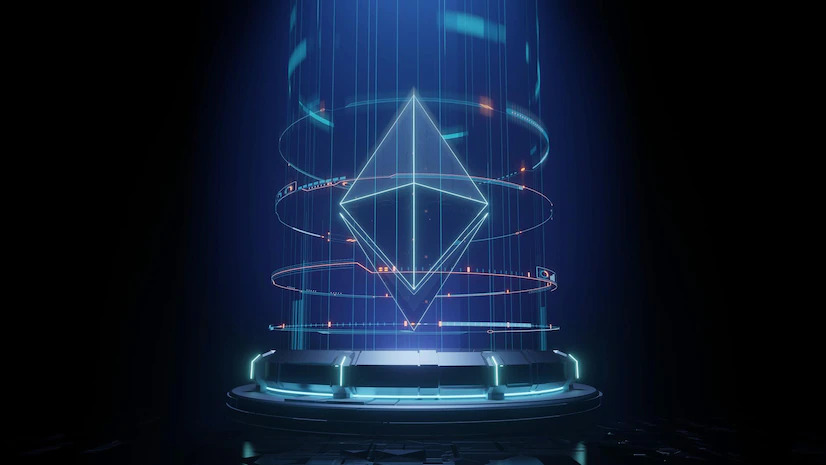-
Developer Fabin Vogelstellar suggested Ethereum's call for comments as a way to enable smart contracts to communicate in 2015, as a typical response to a fundamental issue caused by their widespread use. The moniker comes from the fact that he posted it as the twentieth remark on the project's GitHub page. ERC-20 was formally adopted as Ethereum Improvement Proposal 20 two years later (EIP-20). Developers can create their crypto tokens on the network thanks to the ERC-20 token standard. Using tokens for new items is far simpler for a company than setting up its blockchain and new currency.
Also, Scaffold, a hub of Smart Contract solutions for launching projects like ERC-20 tokens, DAO projects, and staking platforms, even reduces the time to create a new token significantly. It offers a pre-built architecture of the ERC-20 token standard for creating any new token and saves a considerable amount of development time and effort.
What is Contained in the ERC-20 Standard
For a token you develop, ERC-20 consists of a set of coding functions and events that must be implemented. It controls the actions that smart contracts take. The supply, holding, and return of balances, the execution of transfer and withdrawal requests, and approval are all outlined in these guidelines. The bare minimum (the interface's core) consists of:
- The total supply is the total number of tokens that will ever be produced.
- balanceOf: The total tokens that the account owns.
- transfer: Sending the recipient a specific number of tokens from the caller's account.
- transferFrom: Transferring a specific number of tokens via the allowance mechanism from the sender to the recipient.
- accept: Permission for a spender to take a specific number of tokens out of a specific caller's account.
- Allowance: The number of tokens left over for a spender to use on behalf of the caller
- Transfer (event): A successful transfer is referred to as a transfer.
- Approval (even): A record of an authorized event
Because of the interoperability provided by the Ethereum network standard, ERC-20 tokens function with all wallets and DEXs. Any contract-specific code may make use of the same definitions. As a result, it is compatible with all other token contracts, including wallets, Dapps, and liquidity pools.
Also, Read | ERC-20 Token Standard | Development Essentials
Applications and Use Cases of ERC-20 Token Standard
Tokens can be used for a variety of purposes. They can be used to represent ownership, pay for products and services, pay for functions (utility tokens), and more. Tokens created on the Ethereum blockchain may be traded on both centralized and decentralized exchanges, as well as:
Represent money-related assets
Let's say a smart contract creates 100 XYZ tokens for each ETH sent by a donor. It will eventually produce and distribute 100,000 tokens, even if it can only receive a total of 1,000 ETH. This strategy is comparable to an IPO as a means of raising capital (initial public offering). Be aware that depending on the country, regulators may consider these tokens to be securities.
Represent Reputation Points and Loyalty Rewards
Imagine you run a travel agency and need to put a rewards program in place. Tokens may be given out as reward points so that customers could exchange them for goods or services. Additionally, these tokens may offer holders exclusive perks like VIP treatment.
Represent the right to vote
For instance, under the governance of the Compound protocol, the COMP governance token and voting power equate 1:1.
Display Actual Items
An ERC-20 coin that represents US dollars is called Tether (USDT). Holders may simply transfer it around, trade it, and utilize smart contracts to use it for yield. Gold and real estate are two additional ERC-20 use cases that are viable. The actual items and digital tokens need to be permanently connected for this application.
A Basic Attention Token is a type of account on a website that links users, publishers, and advertising. This distinguishes it from commodities, securities, and digital currencies. In addition to functioning as an Ethereum utility token, BAT also offers an SPL variant that uses Solana.
Also, Read | A Quick Guide to Ethereum ERC Token Standards
Popular Ethereum-based Fungible Coins
To date, more than 500,000 ERC-20 tokens have been produced. Other than Tether (USDT), the most well-known ones consist of:
- Circle announced USD Coin (USDC), a stablecoin backed by the US dollar
- Shiba Inu (SHIB), a meme coin that is frequently used as a Dogecoin substitute (DOGE)
- Binance and Paxos created the USD-backed stablecoin known as Binance USD (BUSD)
- The Binance Exchange released a cryptocurrency called BNB (BNB)
- MakerDAO manages and controls the USD-backed stablecoin DAI Stablecoin (DAI)
- A 1:1 Bitcoin-backed token that can be used in DeFi apps is called Wrapped Bitcoin (WBTC)
What's Next for ERC-20 Token Standard for Smart Contracts
Smart contracts have greatly aided the adoption of ERC-20 tokens within the cryptocurrency community. Despite the emergence of so-called Ethereum killers, the ecosystem is still second to Bitcoin in terms of popularity.
The token standard speeds up development because it lets smart contract developers know how their cryptocurrencies will work with the Ethereum blockchain. ERC-20 prevents the requirement for old projects to be redone and guarantees their compatibility with brand-new projects.
ERC-20 tokens are very adaptable; they can be used as a form of virtual money, to grant prizes for loyalty, to grant voting rights, or even to represent real-world items like gold. The biggest potential threat, as long as the blockchain retains its standing, could only originate from inside, if new Ethereum standards for other tokens eclipse ERC-20.

Our Offices
INDIA
Emaar Digital Greens, Sector 61,
Gurugram, Haryana
122011.
Welldone Tech Park,
Sector 48, Sohna road,
Gurugram, Haryana
122018.















